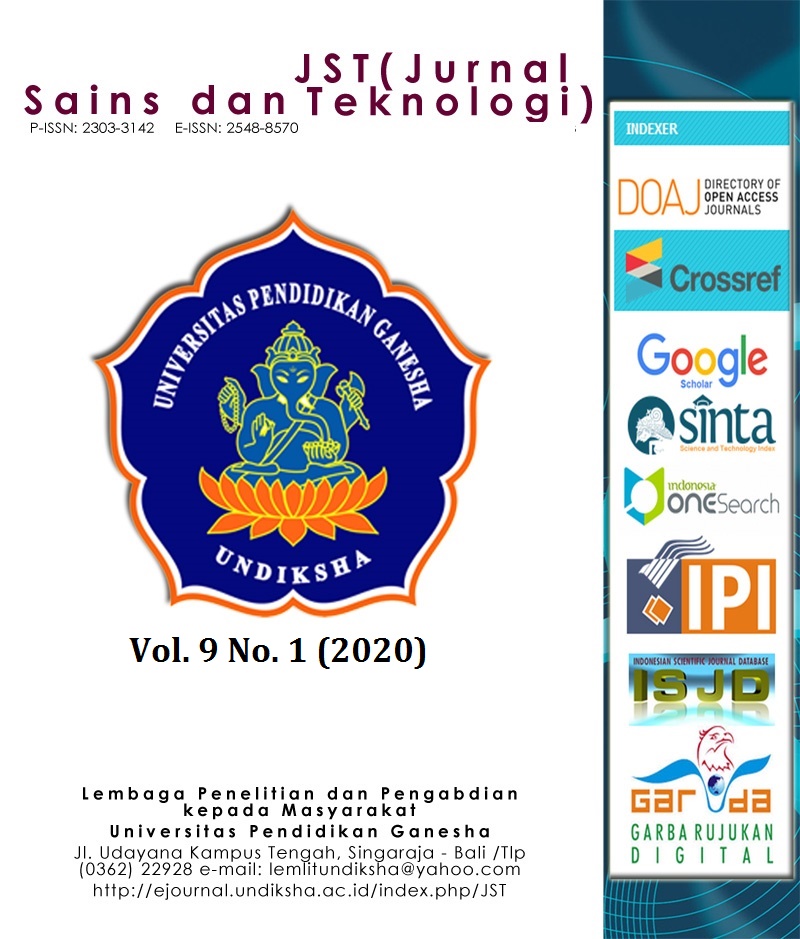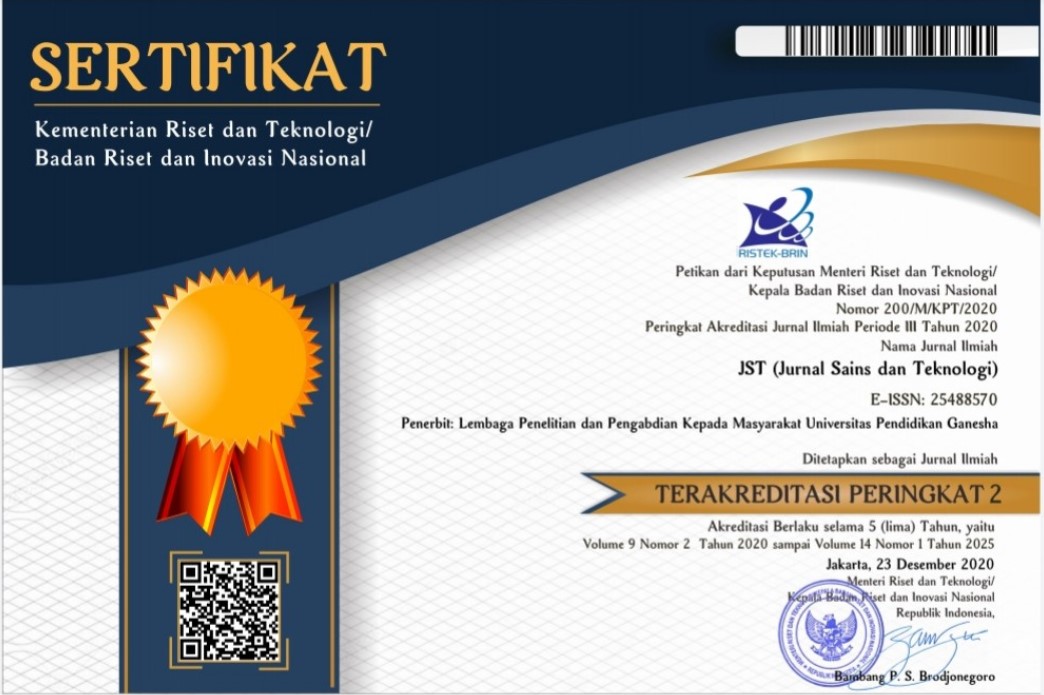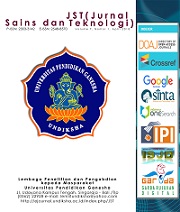PREDIKSI NILAI AKADEMIK MAHASISWA MENGGUNAKAN ALGORITMA NAÏVE BAYES
DOI:
https://doi.org/10.23887/jstundiksha.v9i1.19488Keywords:
Pendidikan, Akademik, Naïve BayesAbstract
Pendidikan adalah suatu hal yang sangat penting dalam perkembangan suatu negara. Salah satu cara untuk meningkatkan kualitas yang lebih tinggi dari skema pendidikan tinggi adalah dengan memprediksi penilaian akademik mahasiswa dan dengan demikian lembaga dapat mengambil tindakan awal untuk meningkatkan kinerja siswa. Klasifikasi mahasiswa berdasarkan potensi kinerja akademis mereka dapat menjadi strategi yang berguna untuk mengurangi kegagalan, untuk mempromosikan pencapaian hasil yang lebih baik dan untuk mengelola sumber daya yang lebih baik di lembaga pendidikan tinggi. Penelitian ini akan mengukur nilai akademis mahasiswa dengan menggunakan algoritma Naïve Bayes dimana memanfaatkan perhitungan probabilitas dan statistik data sebelumnya untuk memprediksi data di masa depan berdasarkan pada data sebelumnya. Hasil penelitian menunjukkan accuracy 96,24%, precison 95,76%, dan recall 100%. Selain itu dengan algoritma Naïve Bayes menunjukkan hasil prediksi berdasarkan mahasiswa yang kuliah sambil bekerja, jadwal kerja mahasiswa, dan berdasarkan waktu kuliah.References
Annisa, R. (2019). Analisis Komparasi Algoritma Klasifikasi Data Mining Untuk Prediksi Penderita Penyakit Jantung. Jurnal Teknik Informatika Kaputama, 3(1), 22–28.
Brown, M. S. (2014). (For Dummies) Meta S. Brown-Data Mining For Dummies-Wiley Publishing Inc. (2014).pdf. Retrieved from www.wiley.com
Bunker, R. P., & Thabtah, F. (2019). A machine learning framework for sport result prediction. Applied Computing and Informatics, 15(1), 27–33. https://doi.org/10.1016/j.aci.2017.09.005
Hamsa, H., Indiradevi, S., & Kizhakkethottam, J. J. (2016). Student Academic Performance Predicting Model Using Decision Tree and Fuzzy Genetic Algorithm. Procedia Technology, 25, 326–332. https://doi.org/10.1016/j.protcy.2016.08.114
Mandelman, S. D., Barbot, B., & Grigorenko, E. L. (2015). Predicting academic performance and trajectories from a measure of successful intelligence. Learning and Individual Differences. https://doi.org/10.1016/j.lindif.2015.02.003
Miguéis, V. L., Freitas, A., Garcia, P. J. V, & Silva, A. (2018). Early segmentation of students according to their academic performance: a predictive modeling approach. Decision Support Systems, #pagerange#. https://doi.org/10.1016/j.dss.2018.09.001
Downloads
Published
How to Cite
Issue
Section
License
Authors who publish with the Jurnal Sains dan Teknologi (JST) agree to the following terms:
- Authors retain copyright and grant the journal the right of first publication with the work simultaneously licensed under a Creative Commons Attribution License (CC BY-SA 4.0) that allows others to share the work with an acknowledgment of the work's authorship and initial publication in this journal.
- Authors are able to enter into separate, additional contractual arrangements for the non-exclusive distribution of the journal's published version of the work (e.g., post it to an institutional repository or publish it in a book), with an acknowledgment of its initial publication in this journal.
- Authors are permitted and encouraged to post their work online (e.g., in institutional repositories or on their website) prior to and during the submission process, as it can lead to productive exchanges, as well as earlier and greater citation of published work. (See The Effect of Open Access)
















